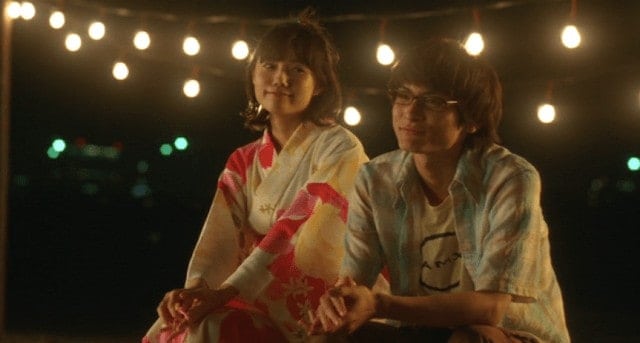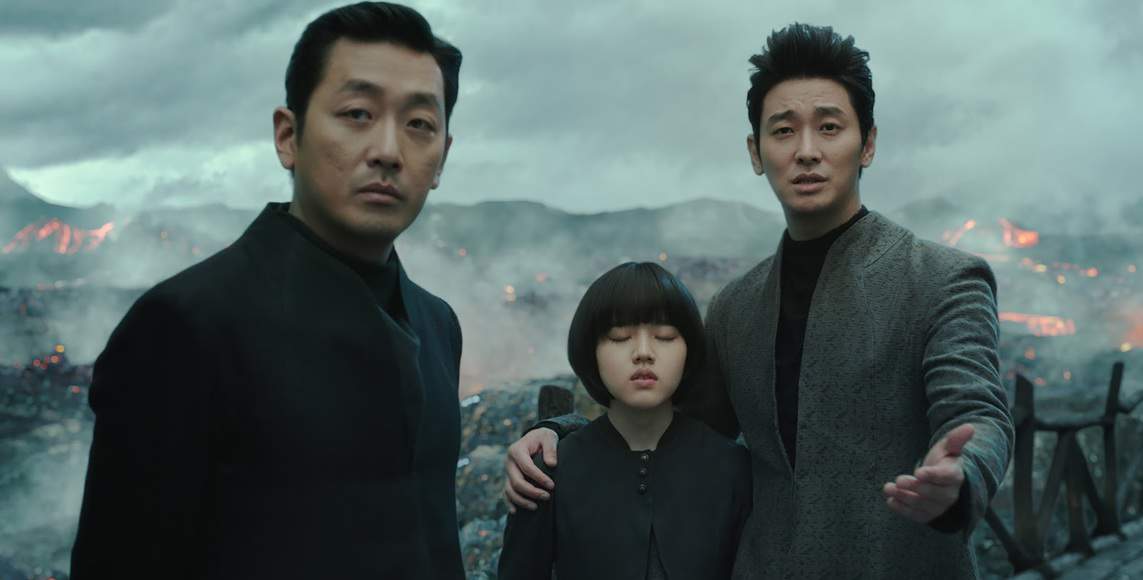Meiko and Taneda are a young couple having difficulties living in the city. Having both grown up in smaller towns, they long for a life they fantasized about as young kids. Meiko works as an office girl, a mundane job she despises but tolerates in order to keep her apartment that she lets Taneda stay at, since his job as a freelance editor does not pay enough for rent. However, after an awkward encounter at work with one of her supervisors, Meiko decides to quit her job, and having no other prospects, Meiko and Taneda live off of her savings, as Meiko searches for something that will bring her life more meaning.
Buy This Title
Meiko projects some of her fantasies onto Taneda and encourages him to pursue a career in music with his band, which had previously been a way for him and his friends, Kenichi and Jiro, to keep in touch. However, the group is unable to find success after sending their demo track “Solanin” to various studios, and as a result, Taneda begins to drift from the group. Shortly after, a great tragedy falls upon the group of friends and they are forced to move forward, despite being already filled with some self doubt and emotional stresses.
The story closely follows the manga written by Inio Asano. A mangaka whose work is known for creating relatable characters facing realistic struggles, told through an emotionally engaging narrative. The film, for the most part, is able to capture the atmosphere of the manga, successfully recreating those key moments, bringing the beauty and the tragedy of the original onto the screen. The music plays a pivotal part in the story, striving to capture a strong emotional connection. In particular, the track “Solanin” by Asian Kung-Fu Generation is quite accessible, the music itself is generic pop-rock, but with strong lyrics and a great live mock-up performance from the cast, it transcends its simplistic nature to become something dazzling, which leaves a strong impact and acts as an ideal way to wrap up the final act of the film.
With the exception of Aoi Miyazaki as Meiko, the acting falls pretty flat, and if not for the strong script would have been a detriment to the film. This will likely be a bias of a lot of people who have read the manga prior, as even though Miyazaki was enjoyable, she still does fall short of recreating the essence of Meiko in the manga. The runtime is a bit of a deterrent, since, being an adaptation of a “Slice of Life” manga, there is not too much action, and the focus is on the emotional interactions between characters. However, this is a soft critique, since, although the film did seem to drag it would be difficult to pick out what scenes felt unnecessary, as they all have their place within the film and offer engaging scenarios.
For those who prefer manga to live action adaptations I can see this film being a bit of a disappointment, as it does not really take any chances, instead following the source material very closely, and in the end is unable to capture the drama on the same level as the source. However, I think that will always be a complaint when adapting both manga and anime, as those are two genres that have a large, cult fan base which has not entirely embraced live action cinema. Overall, “Solanin” is one of the better adaptations I have come across and even though I knew what was going to happen, I still found myself getting emotionally invested in the characters and going through a gambit of feelings as you follow the group through good and bad times.
Given the importance of the performance of the song “Solanin” near the end of the film having a deep significance to the characters, the scene should leave a strong impact on viewers. Watch the movie and read the manga, there is a good reason why it is so critically acclaimed and fans of ‘Slice of Life', drama, and romance genre won't be disappointed here.


















